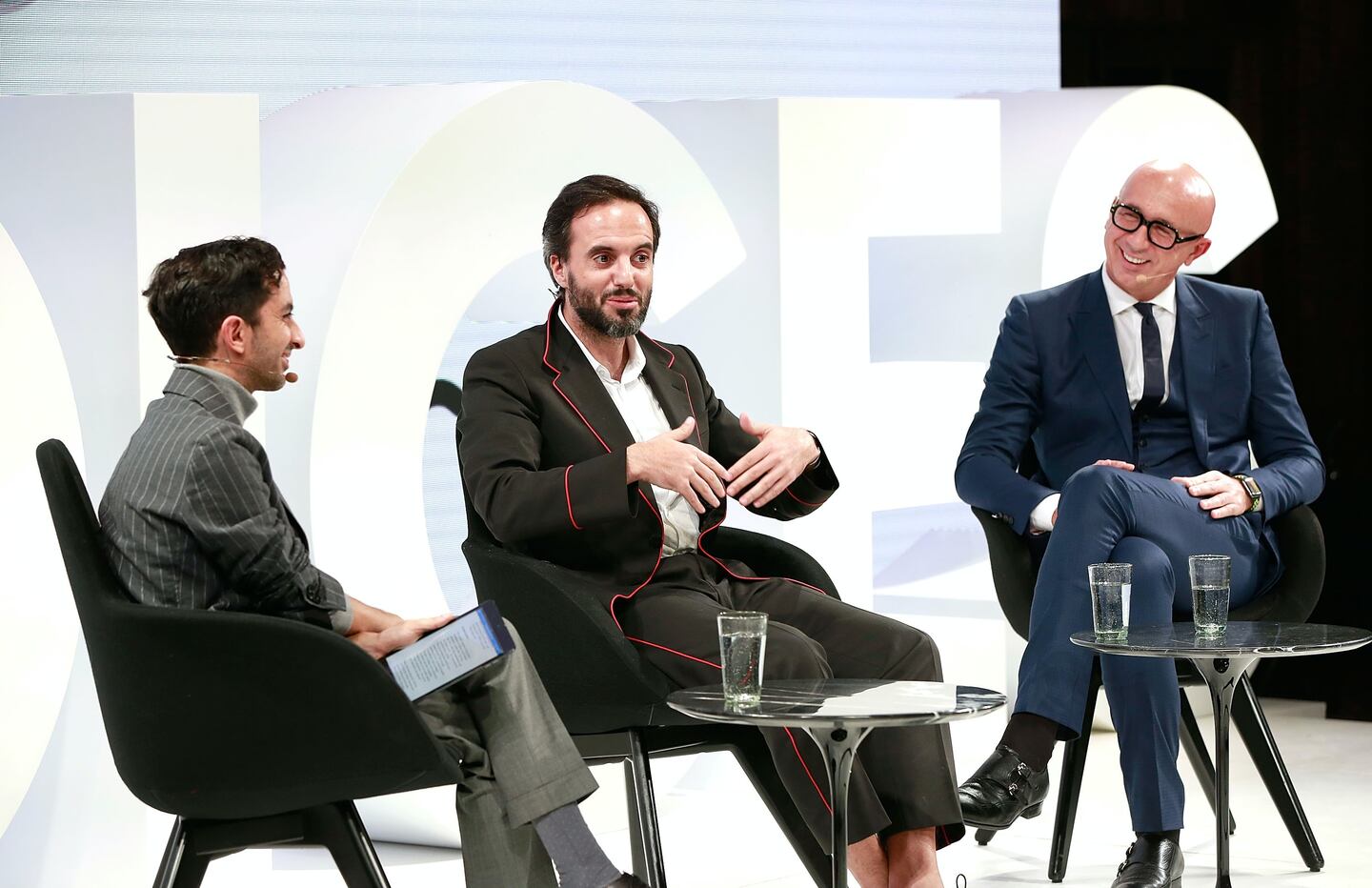
The Business of Fashion
Agenda-setting intelligence, analysis and advice for the global fashion community.

Agenda-setting intelligence, analysis and advice for the global fashion community.

OXFORDSHIRE, United Kingdom — "At no point in human history is intuition more likely to be wrong than it is today," said Richard Dobbs, senior partner at McKinsey & Company. It was a provocative beginning to his presentation at VOICES, BoF's first annual gathering for big thinkers in the fashion industry.
Intuition, of course, is highly valued in fashion. But the key forces colliding and transforming the global economy each, on their own, are "larger than any economic force we’ve ever seen," according to Dobbs. “The tidal wave that’s coming — if your core business is not going to survive, you better recognise it now and create new things."
Any business strategy based on intuition rooted in past experiences will soon become obsolete, Dobbs continued. What's more, the growth of emerging markets will give rise to new competitors. Dobbs predicts that by 2025, half of the world’s largest companies will be from emerging markets. “They will build to come after you at 30 percent less."
https://www.youtube.com/watch?v=v-GNfjVllg8&feature=youtu.be
ADVERTISEMENT
Technology players are another major threat to fashion. "When a tech company steps into another industry, they destroy five times the amount of profit they create," said Dobbs, citing Airbnb.
Echoing earlier talks at VOICES on the instability of the wider geopolitical context, Dobbs also predicted that a "bigger Trump effect" was coming. Prior to 2005, 98 percent of people in the developed world were richer than their parents, he said.
Today, only 30 percent of people are better off than their parents. “There is going to be a growing group of people in the world that are poorer than their parents and richer than their children, unleashing political discontent," said Dobbs.
Of course, pulling off the fundamental business transformations that are required in the face of these challenges is not easy, but something that is achievable if fashion's leaders are optimistic and build the capabilities to innovate.
Agility is critical, said Dobbs. “Both Netflix and Blockbuster had business models that weren't going to survive — one was agile and responded, and the other didn’t.” Survival will be easier for companies that don’t try to do everything themselves, he added. "Uber didn’t make cell phones."
Later in the day, Gucci chief executive Marco Bizzarri and Farfetch founder José Neves took the stage to discuss their leadership strategies and how to stay competitive amidst a world of disruption. "I'm an optimist by nature," said Neves. "I was quite interested in the fact that for every problem [discussed at VOICES], the solutions were things we also talked about. It's almost like a symmetry between the solutions and the problems."
Bizzarri agreed, stressing the importance of strong company values in the face of uncertainty. “You have to make sure that the company is sustainable enough... that the people share the same values of happiness, respect, joy and are quick to respond. That, to me, is the big shift that we need to face in the coming years of fashion. Values are more important than strategy today.”
Neves echoed the thought: “It’s all about the people you hire. You need to be surrounded by dreamers,” he said, adding that Farfetch organizes its initiatives into three categories: optimization, sustaining innovation and disruptive innovation.
ADVERTISEMENT
“I always tell our team that our business model may be fantastic today, growing very fast, but in five years, it will be irrelevant,” added Neves. “Are we playing to win or are we playing not to lose? When a company plays not to lose in the current age, they are going to lose.”
Related Articles:
Marco Bizzarri on Gucci's Remarkable Turnaround
Farfetch's Global Platform Play
VOICES is BoF's new annual gathering for big thinkers, taking place from 1-3 December, in partnership with QIC Global Real Estate. To follow all the discussions, interviews and stories on the VOICES stage, watch our live stream, brought to you by Topshop, or read our live blog.
In 2020, like many companies, the $50 billion yoga apparel brand created a new department to improve internal diversity and inclusion, and to create a more equitable playing field for minorities. In interviews with BoF, 14 current and former employees said things only got worse.
For fashion’s private market investors, deal-making may provide less-than-ideal returns and raise questions about the long-term value creation opportunities across parts of the fashion industry, reports The State of Fashion 2024.
A blockbuster public listing should clear the way for other brands to try their luck. That, plus LVMH results and what else to watch for in the coming week.
L Catterton, the private-equity firm with close ties to LVMH and Bernard Arnault that’s preparing to take Birkenstock public, has become an investment giant in the consumer-goods space, with stakes in companies selling everything from fashion to pet food to tacos.